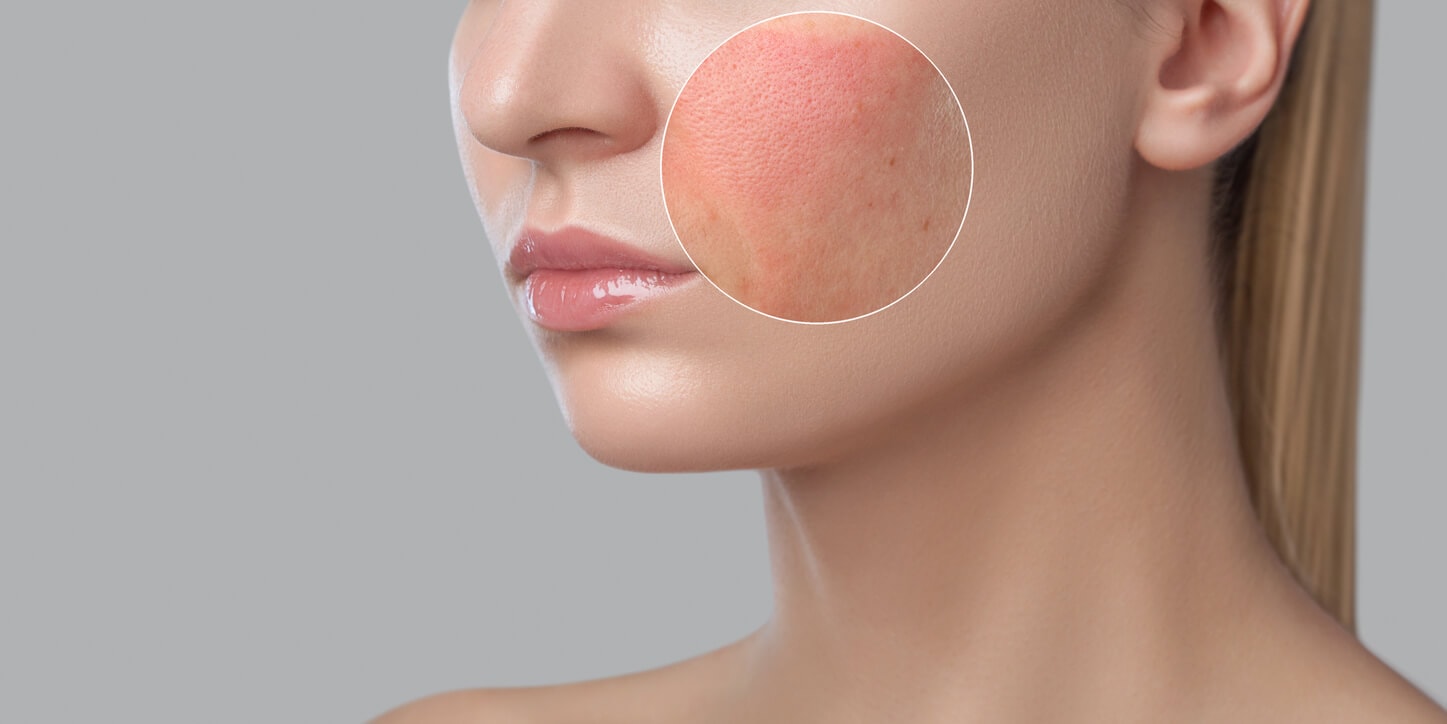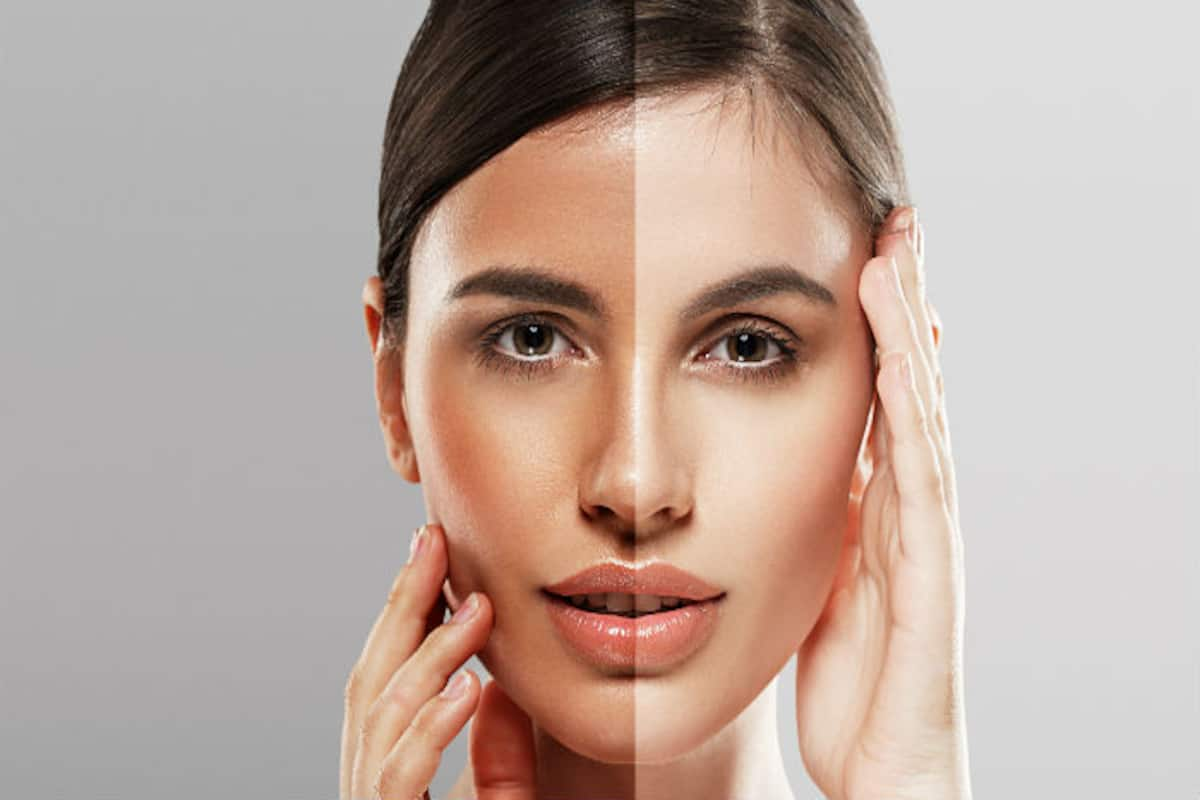The quest for healthy, radiant skin is a common goal for many individuals seeking to enhance their overall appearance and boost their self-confidence. While skincare routines and topical treatments are popular avenues to achieve this, the impact of nutrition on skin health should not be overlooked. Among the various nutrients that contribute to skin vitality, B vitamins stand out for their remarkable benefits. In this article, we will explore the top five ways in which B vitamins positively influence skin health and complexion, shedding light on their importance and potential to transform your skin.
1, B Vitamins Promote Healthy Skin Cells.
B vitamins, including B3 (niacin), B5 (pantothenic acid), and B7 (biotin), are indeed important for maintaining the health of your skin cells. Here's how each of these vitamins contributes to skin health:
B3 (Niacin): Niacin is essential for the proper functioning of your skin cells. It helps in improving the moisture barrier of your skin, preventing water loss and maintaining hydration. Niacin also promotes the production of ceramides, which are lipids that help maintain the skin's protective barrier. Furthermore, niacin can improve blood circulation, leading to a healthier complexion.
B5 (Pantothenic Acid): Pantothenic acid plays a vital role in the growth and regeneration of skin cells. It helps in the formation of coenzyme A, which is involved in various cellular processes, including the production of energy and the synthesis of fatty acids. Pantothenic acid also has moisturizing properties, aiding in hydration and maintaining the skin's elasticity.
B7 (Biotin): Biotin is commonly known as the "beauty vitamin" due to its positive effects on hair, skin, and nails. It is involved in the metabolism of fatty acids, amino acids, and glucose, which are essential for the production of healthy skin cells. Biotin supports the formation of keratin, a protein that makes up the structure of your skin, hair, and nails.
In addition to these B vitamins, other B-complex vitamins, such as B1 (thiamine), B2 (riboflavin), B6 (pyridoxine), and B12 (cobalamin), also contribute to overall skin health. They play various roles in cell metabolism, antioxidant defense, and collagen synthesis, which are crucial for maintaining youthful and vibrant skin.
While B vitamins are beneficial for skin health, it's important to note that they should be obtained through a well-balanced diet. Foods rich in B vitamins include whole grains, leafy greens, legumes, eggs, meat, nuts, and seeds. If you have any specific skin concerns, it's always a good idea to consult with a healthcare professional or dermatologist for personalized advice and treatment.
2, B Vitamins Aid in Collagen Production.
B vitamins play a role in collagen production, which is essential for maintaining the structure and elasticity of the skin. Here's how specific B vitamins aid in collagen synthesis:
B2 (Riboflavin): Riboflavin is involved in the conversion of tryptophan to niacin, which is necessary for collagen formation. It also acts as a cofactor for enzymes involved in collagen synthesis. Adequate riboflavin levels are important for maintaining healthy skin and preventing skin disorders.
B3 (Niacin): Niacin is essential for the production of nicotinamide adenine dinucleotide phosphate (NADPH), which is a coenzyme involved in various metabolic processes, including collagen synthesis. Niacin also helps improve the moisture barrier of the skin and enhance its overall appearance.
B6 (Pyridoxine): Pyridoxine is involved in numerous enzymatic reactions in the body, including the synthesis of collagen. It helps convert the amino acid proline into hydroxyproline, which is an essential component of collagen fibers. Pyridoxine also promotes skin health by supporting the metabolism of essential fatty acids.
B12 (Cobalamin): Cobalamin is necessary for the production of DNA and RNA, which are crucial for cell growth and division. Collagen synthesis requires an adequate supply of DNA and RNA. Therefore, B12 indirectly contributes to collagen production and skin health.
Collagen provides structural support to the skin, keeping it firm and supple. As we age, collagen production naturally decreases, leading to the appearance of fine lines, wrinkles, and sagging skin. Adequate levels of these B vitamins, along with other nutrients, can help support collagen synthesis and maintain the youthful appearance of the skin.
However, it's important to note that while B vitamins are important for collagen production, they are not the only factors influencing collagen synthesis. Other factors, such as genetics, hormonal balance, and environmental factors, also play a role. Additionally, the overall diet and lifestyle choices impact collagen production and skin health.
It's always recommended to maintain a well-balanced diet that includes a variety of foods rich in B vitamins, as well as other nutrients important for skin health. If you have specific concerns about your skin, consulting with a healthcare professional or dermatologist can provide personalized advice and guidance.
3, B Vitamins Reduce Skin Inflammation.
B vitamins, particularly vitamin B3 in the form of niacinamide, have been found to possess anti-inflammatory properties and can help reduce skin inflammation. Here's how B vitamins contribute to calming skin inflammation:
Vitamin B3 (Niacinamide): Niacinamide is a form of vitamin B3 that has been extensively studied for its beneficial effects on the skin. It has been shown to have anti-inflammatory properties by inhibiting the production of inflammatory substances, such as cytokines and prostaglandins. Niacinamide can help reduce redness, calm irritation, and alleviate symptoms associated with inflammatory skin conditions like acne, rosacea, and eczema.
Niacinamide also helps improve the skin's barrier function by increasing ceramide production, which enhances hydration and strengthens the skin's protective barrier. By maintaining a healthy skin barrier, niacinamide can reduce the likelihood of skin inflammation caused by external factors like pollution and UV radiation.
Furthermore, niacinamide has been shown to regulate sebum production, which can be beneficial for individuals with oily or acne-prone skin. By controlling excess sebum, niacinamide can help prevent clogged pores and the subsequent development of inflammatory acne.
It's important to note that while niacinamide has been extensively studied for its anti-inflammatory effects, other B vitamins may also contribute to reducing skin inflammation to a certain extent. However, the specific mechanisms and effectiveness may vary among the different B vitamins.
Using skincare products containing niacinamide or consuming foods rich in B vitamins can provide potential benefits for reducing skin inflammation. However, it's always recommended to consult with a healthcare professional or dermatologist for personalized advice and treatment options, especially if you have specific skin concerns or conditions. They can recommend appropriate skincare products or dietary changes based on your individual needs.
4, B Vitamins Protect the Skin Barrier.
B vitamins, particularly B5 (pantothenic acid), play a role in strengthening the skin barrier and protecting against moisture loss. Here's how B vitamins contribute to the health and protection of the skin barrier:
B5 (Pantothenic Acid): Pantothenic acid is essential for maintaining the integrity of the skin barrier. It helps improve the skin's ability to retain moisture by enhancing the production of natural moisturizing factors (NMFs). NMFs are substances that occur naturally in the skin and help retain water, keeping the skin hydrated. Pantothenic acid also has emollient properties, which further contribute to the skin's hydration and softness.
By strengthening the skin barrier, pantothenic acid helps protect the skin from external stressors, such as pollutants, UV radiation, and harsh weather conditions. A healthy and intact skin barrier helps prevent water loss and keeps irritants and allergens from penetrating the skin, reducing the risk of inflammation and skin sensitivity.
In addition to B5, other B vitamins, such as B3 (niacinamide), also contribute to the maintenance and protection of the skin barrier. For example, niacinamide supports the production of ceramides, which are lipids that form a crucial part of the skin barrier. Ceramides help maintain the skin's moisture balance and protect against environmental aggressors.
Maintaining a well-hydrated and protected skin barrier is important for overall skin health. It helps keep the skin moisturized, supple, and less prone to dryness, sensitivity, and other skin concerns.
You can incorporate B vitamins into your skincare routine by using products containing these vitamins, such as moisturizers, serums, or creams. Additionally, consuming a balanced diet that includes foods rich in B vitamins, such as whole grains, legumes, eggs, meat, nuts, and seeds, can also support the health and function of the skin barrier.
If you have specific concerns about your skin or the condition of your skin barrier, it's recommended to consult with a healthcare professional or dermatologist for personalized advice and treatment options. They can provide tailored recommendations based on your individual needs.
5, B Vitamins Improve Skin Tone and Radiance.
B vitamins can contribute to improving skin tone and radiance. Here's how B vitamins can enhance the appearance of your skin:
Regulation of Melanin Production: B vitamins, particularly vitamin B3 (niacin), play a role in regulating the production of melanin, the pigment responsible for skin color. Excessive melanin production can lead to uneven skin tone, hyperpigmentation, or dark spots. By helping to regulate melanin synthesis, B vitamins can promote a more even skin tone and reduce the appearance of discoloration.
Enhanced Blood Circulation: B vitamins, such as B3 (niacin), B6 (pyridoxine), and B12 (cobalamin), can improve blood circulation to the skin. Better blood flow ensures an adequate supply of oxygen and nutrients to the skin cells, promoting a healthy complexion. Improved circulation can give the skin a natural glow and a more vibrant appearance.
Antioxidant Properties: Some B vitamins, like B2 (riboflavin) and B3 (niacin), possess antioxidant properties. Antioxidants help protect the skin from oxidative stress caused by free radicals, which can damage skin cells and contribute to premature aging. By neutralizing free radicals, B vitamins can help maintain the skin's youthful appearance and radiance.
It's important to note that while B vitamins can contribute to improving skin tone and radiance, their effects may vary depending on individual factors and overall skin health. It's also crucial to have a well-rounded skincare routine and a balanced diet that includes other nutrients essential for skin health, such as vitamins C, E, and A, along with a healthy lifestyle.
If you have specific concerns about your skin tone or radiance, it's recommended to consult with a healthcare professional or dermatologist. They can provide personalized advice and recommend suitable skincare products or treatments to help improve your skin's appearance.
In conclusion, the role of B vitamins in promoting skin health and enhancing complexion cannot be overstated. From their ability to nourish and support the growth of healthy skin cells to their impact on collagen production, inflammation reduction, protection of the skin barrier, and improvement of skin tone and radiance, B vitamins offer a holistic approach to achieving vibrant, youthful skin. Incorporating foods rich in B vitamins into your diet or considering B vitamin supplements, under the guidance of a healthcare professional, can provide long-lasting benefits for your skin. Remember, healthy skin is not solely about external treatments; it begins from within, and B vitamins are a powerful ally on your journey to achieving the skin you desire.





Comments
Post a Comment